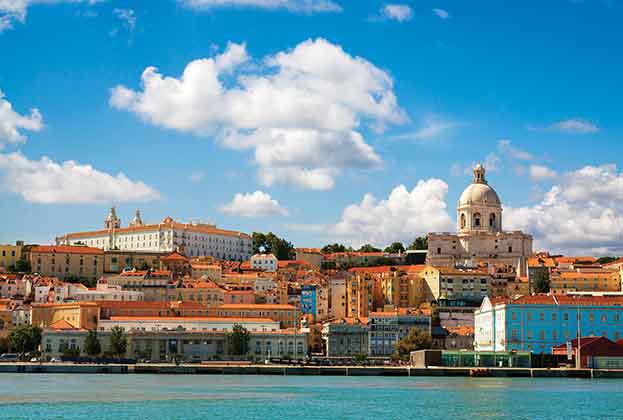The Portuguese capital’s prime market offers value on the global stage, and the city looks set to outperform other European cities in the near term
Economic prospects
The global macro-environment is very different to that of six months ago. Lisbon’s economy is no exception, although it is forecast to hold up slightly better than some of its European peers. Lisbon’s GDP is expected to contract by some 9% in 2020, this is less than the likes of Barcelona (-10%) and Paris (-11%), but more than London (-8%) and Berlin (-5%).
The recovery in visitor numbers, a critical part of the economy, is likely to be slow, weighing on the recovery. Lisbon has benefited greatly from a tourism surge in recent years, with over 18.4m overnight visitor stays in 2019, an increase of 5% from 2018 and a 133% increase from ten years ago (compared to a 4% and 64% increase respectively in Barcelona, for example).
The rental market
In 2012 the government introduced rental market reforms, allowing for greater flexibility in lease terms and facilitating a rise in short-let providers. This led to rapid growth in the short-let market, hand in hand with Lisbon’s tourism boom.
In 2018, the government suspended all new licences for short-term rentals in certain areas of the city popular among tourists.
With opportunities for new entrants in the short-let market limited, demand impacted by the pandemic, and a shortage of long-term rentals, there is opportunity to serve the traditional rental market, particularly targeted at professionals living in the city.
From growth to maturity
Lisbon is emerging from a period of sustained growth as the city played catch up to its Western European peers. Set against a challenging macro-economic environment, we expect to see a more moderate rate of price growth in the near term, but still high by global standards (see Market Outlook table below).
Lisbon’s prime residential market is forecast to be one of the strongest performers out of the 28 cities in Savills World Cities Prime Residential Index for both the remainder of 2020 and the next five years.
Portugal’s Golden Visa and NHR schemes are likely to keep international interest and investment in the market high, at least in the short to medium term, which will help the recovery from the impact of the pandemic. In the long term, Lisbon continues to mature on a global stage while offering value in both a European and global context.
Read the other articles within Spotlight: Lisbon Residential Market 2020 below
.jpg)

